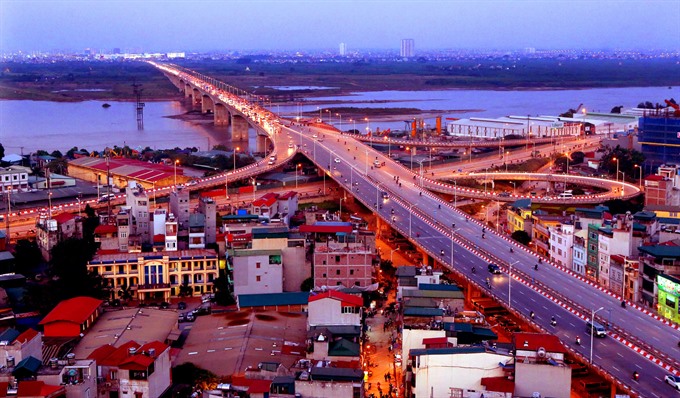 Politics & Law
Politics & Law

The Planning Law needs to target existing shortcomings to ensure that the country’s socio-eonomic development strategy is legal and concrete, said deputies at the second session of 14th NA yesterday.
 |
| Vĩnh Tuy Bridge connecting Hà Nội’s Hai Bà Trưng and Long Biên districts crossing the Hồng (Red) River has marked the completion of planning for the capital’s Road Corridor 2.— VNA/VNS Photo Huy Hùng |
HÀ NỘI – The Planning Law needs to target existing shortcomings to ensure that the country’s socio-eonomic development strategy is legal and concrete, said deputies at the second session of 14th NA yesterday.
Deputies also requested the draft law to closely follow the national development process, to help improve national resource efficiency, create a unity in all levels of management and limit the negative impacts on the whole planning system.
Phạm Văn Tuân, a deputy from northern Thái Bình Province, opened yesterday’s debate referring to various issues in planning activities.
Tuân said it was essential to establish an overall national planning scheme, including a focus on consulting and dossiers.
The deputy added that the state’s management role was not specified in the draft Planning Law, diminishing its feasibility.
While others deputies agreed that adjustment should focus on planning, assessment, approvals, benefits and tasks of authorities, deputies Trịnh Ngọc Phương from the south western Tây Ninh Province and Phạm Trọng Nhân from southern Bình Dương Province called the drafted law a framework to be applied and adjusted to the overall planning system as well as individual objects and activities. Therefore, they argued, it proved that the law’s reach was to wide.
Nhân called it infeasable to expect that the law can apply to the whole planning system while also applying to each individual or object.
As an example, he cited issues with planning activities, such as the complicated and time-consuming scrutinising and reviewing of 20,000 planning dossiers.
Planning is a State management tool and should be used to ensure overall management for the State and others related organs, said Nguyễn Thành Lâm from northern mountain Lạng Sơn Province.
Co-operation between authorised agencies at all levels in planning was a key issue so should be legalised and added to the law, said Thành.
Strategies, planning and plans were the major parts of State management in socio-economic development but relations between the three factors had not been clarified in the draft law, Thành added.
As it was noted in the draft law that strategies were medium and long-term orientations, planning should be used to realise longer term strategies, he said.
But, according to Thành, planning should only affect long-term development strategies.
Thành stressed that violations of planning that caused losses were proof that articles to issue punishments should also be added to the Planning Law.
Also yesterday, deputies debated the draft Law on Guard Force, with included legislation on the use of weapons, the mobilisation of guard forces and the use of equipment during their work.
Referring to the use of weapons including allowing body guards to fire their weapons, many deputies agreed that the use of weapons must be mentioned in the law because it relates directly to human rights and citizenship.
Many deputies said the draft law should regulate in detail the use of weapons by guards, including when guards can shoot and who they can shoot.
Participants said regulations on the guard force were issued in 2005, providing a legal foundation for the force to fulfill its tasks.
It was necessary to make a law on the guard force to concretise articles in the 2013 Constitution, said Dương Văn Thông from northern Bắc Giang, adding that the law would facilitate the force’s security activities, ensure human rights and help set up a comprehensive legal corridor for the security safe guarding system. — VNS




